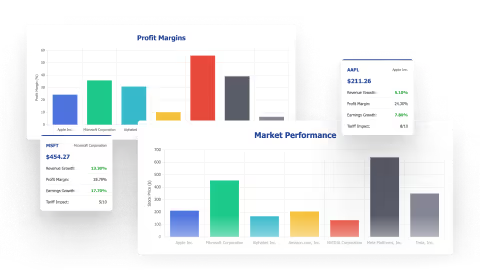Use Case
/
Content & Thought Leadership Research
Uncover key insights to develop content that amplifies your expertise and drives industry conversation
Model
•
Ninja Agent
Research emerging trends and overlooked aspects of agentic AI. Highlight key debates, knowledge gaps, and innovative ideas. Suggest unique perspectives that could position me as a thought leader.
Emerging Trends and Overlooked Aspects of Agentic AI: A Research Report
Executive Summary
This report analyzes the current state, emerging trends, and overlooked aspects of agentic AI, highlighting key debates and knowledge gaps while identifying innovative perspectives for thought leadership. As we approach 2025, agentic AI represents a transformative technology that goes beyond traditional AI by enabling autonomous decision-making and action-taking capabilities.
1. Definition and Current State
1.1 What is Agentic AI?
Agentic AI refers to autonomous systems capable of independent decision-making and goal pursuit without constant human guidance 2. Unlike traditional AI or generative AI, agentic AI focuses on decision-making and autonomous action rather than just content creation 10. These systems use sophisticated reasoning and iterative planning to solve complex, multi-step problems 3.
1.2 Core Components
The agentic AI workflow consists of four fundamental steps:
- Perceive: Gather and process data from various sources
- Reason: Understand tasks and generate solutions using LLM-based orchestration
- Act: Execute tasks through integration with external tools
- Learn: Continuously improve through feedback loops 3
2. Emerging Trends
2.1 Industry Adoption
Major technology companies including Amazon, Google, Microsoft, Oracle, Salesforce, SAP, and Meta are heavily investing in agentic AI development 5. This widespread adoption suggests a significant shift in how businesses will interact with AI systems.
2.2 Scientific Discovery
A particularly promising trend is the application of agentic AI in scientific research. Recent developments include:
- Autonomous experimentation systems for chemistry and materials science
- Multi-agent diagnostic systems in healthcare
- Automated literature review and research planning tools 6
2.3 Human-AI Collaboration
A shift is occurring from fully autonomous systems to human-AI collaborative frameworks, where agentic AI augments human expertise rather than replacing it 6.
3. Overlooked Aspects and Knowledge Gaps
3.1 System Reliability
One critically overlooked aspect is the reliability challenge posed by LLM hallucinations and adversarial attacks 5. This is particularly concerning in high-stakes applications like healthcare or financial trading.
3.2 Multi-Agent Complexity
The interaction between multiple AI agents in complex systems presents unique challenges that are often underexplored. The communication and coordination between agents remain significant technical hurdles 6.
3.3 Domain Adaptation
While frameworks exist for specific domains like machine learning or chemistry, there's limited research on how to effectively adapt agentic AI systems across different fields 6.
4. Key Debates and Controversies
4.1 Autonomy vs. Control
A fundamental debate exists around the appropriate level of autonomy for AI agents. While full autonomy might maximize efficiency, it raises significant concerns about control and accountability 1.
4.2 Novelty Question
There is ongoing debate about whether agentic AI represents genuinely new technology or simply rebranded orchestration of existing capabilities 1.
5. Innovative Ideas and Future Directions
5.1 Cross-Domain Integration
Opportunity exists in developing frameworks that can seamlessly integrate domain-specific knowledge while maintaining generalizability across fields 6.
5.2 Adaptive Trust Systems
Development of dynamic trust calibration systems that can adjust AI agent autonomy based on task criticality and past performance 5.
5.3 Collective Intelligence Frameworks
Creating systems that can effectively combine human expertise with AI capabilities while maintaining transparency and accountability 20.
6. Recommendations for Thought Leadership
6.1 Focus Areas
- Develop frameworks for measuring and ensuring AI agent reliability in high-stakes applications
- Research methods for effective cross-domain knowledge transfer in agentic systems
- Explore the intersection of agentic AI with emerging technologies like quantum computing and blockchain
6.2 Novel Perspectives
- Propose standardized evaluation metrics for agentic AI systems that go beyond task completion to include reliability and adaptability
- Develop theories around "collective intelligence optimization" - how to best combine human and AI agent capabilities
- Research the impact of cultural and societal factors on agentic AI deployment and acceptance
7. Conclusion
As agentic AI continues to evolve, the field presents numerous opportunities for meaningful contribution and thought leadership. The key to establishing authority in this space lies in addressing the overlooked aspects while developing innovative solutions to current challenges.
Explore Related Use Cases
Experience Ninja's AI Assistant
Try for free today. Plans starting at $19/month.




